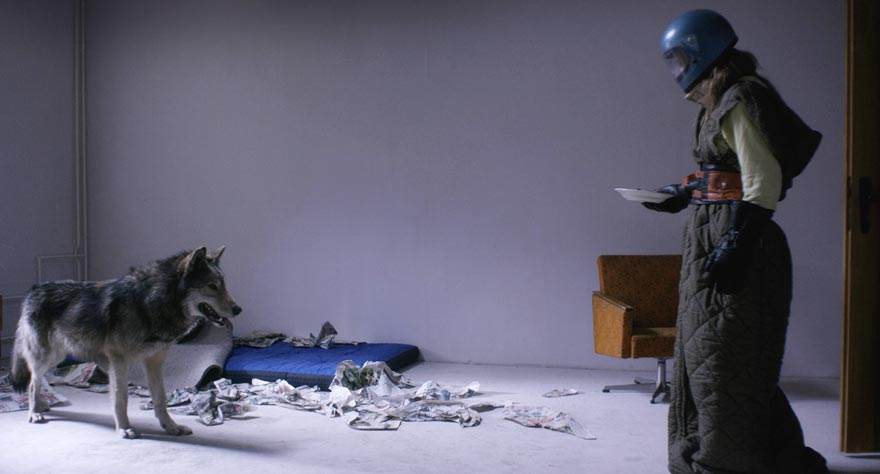Wild (Sundance Review)

German filmmaker Nicolette Krebitz’s Wild features such an outlandish premise—a lonely depraved woman becomes attracted to a wolf—that it’s nearly impossible to not be curious about it.
Working as a glorified secretary for a demanding boss, Ania (played by an up-and-coming Lilith Stangenberg) is searching for something to disrupt her boring, mundane life. On her way to work one morning, she stumbles upon a wolf staring straight at her. Strange, considering their metropolitan location. A wave of excitement comes over Ania’s face, in high contrast to her usual lethargy. Over time, she is unable to shake the image of the wolf from her mind and not long after this encounter she begins to show signs of wolf-like behavior. She howls at the moon from her apartment balcony and cleans herself by licking her hand. For reasons never fully explained, Ania decides to capture the mysterious wolf.
Wild revolves entirely around its ambiguity. The most intriguing questions of the film are brought up after its first half: Why is this woman going through such great lengths for a random wolf? What will she do if she does manage to capture it? Is she slowly turning into a wolf herself? Where Wild stops being intriguing is when the film stalls from relying too much on all its mystery. Krebitz injects some subplots involving estranged family members and a creepy boss that all end up being so unimportant to the story in the end one wonders why they existed in the first place.
There’s some notable qualities found within Wild, such as the intense performance by Stangenberg and some cool naturalistic cinematography, but they aren’t enough to overcome the dour-ness of everything else. It’s a shame a film with such a fascinating and disturbing subject ends up quite tame and dull. Wild touches on the significance of living out one’s natural instincts, but arriving at this flimsy conclusion is anything but natural, and by all means unexciting.
